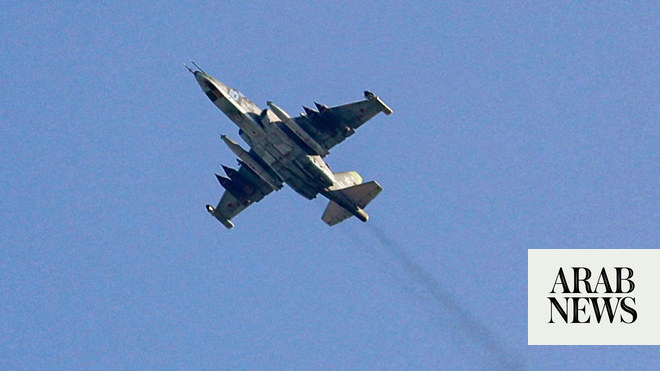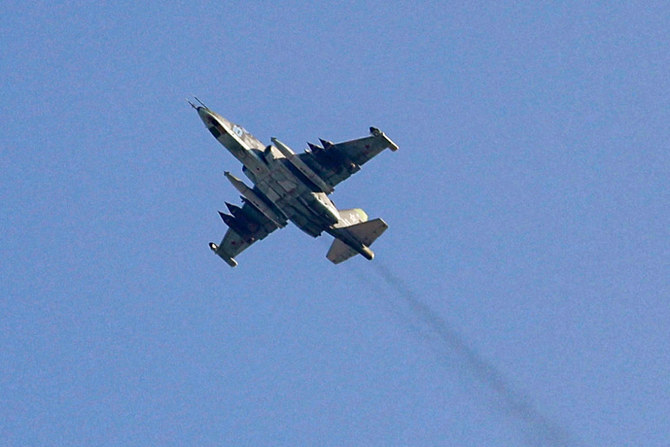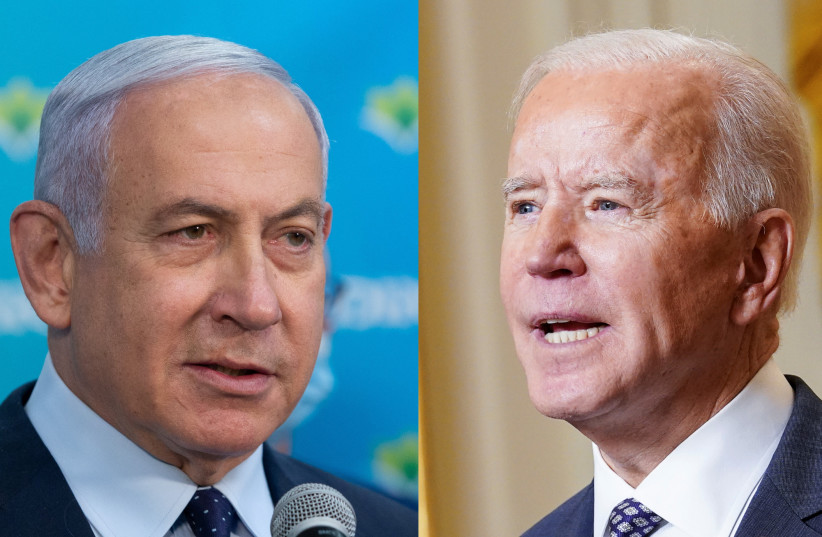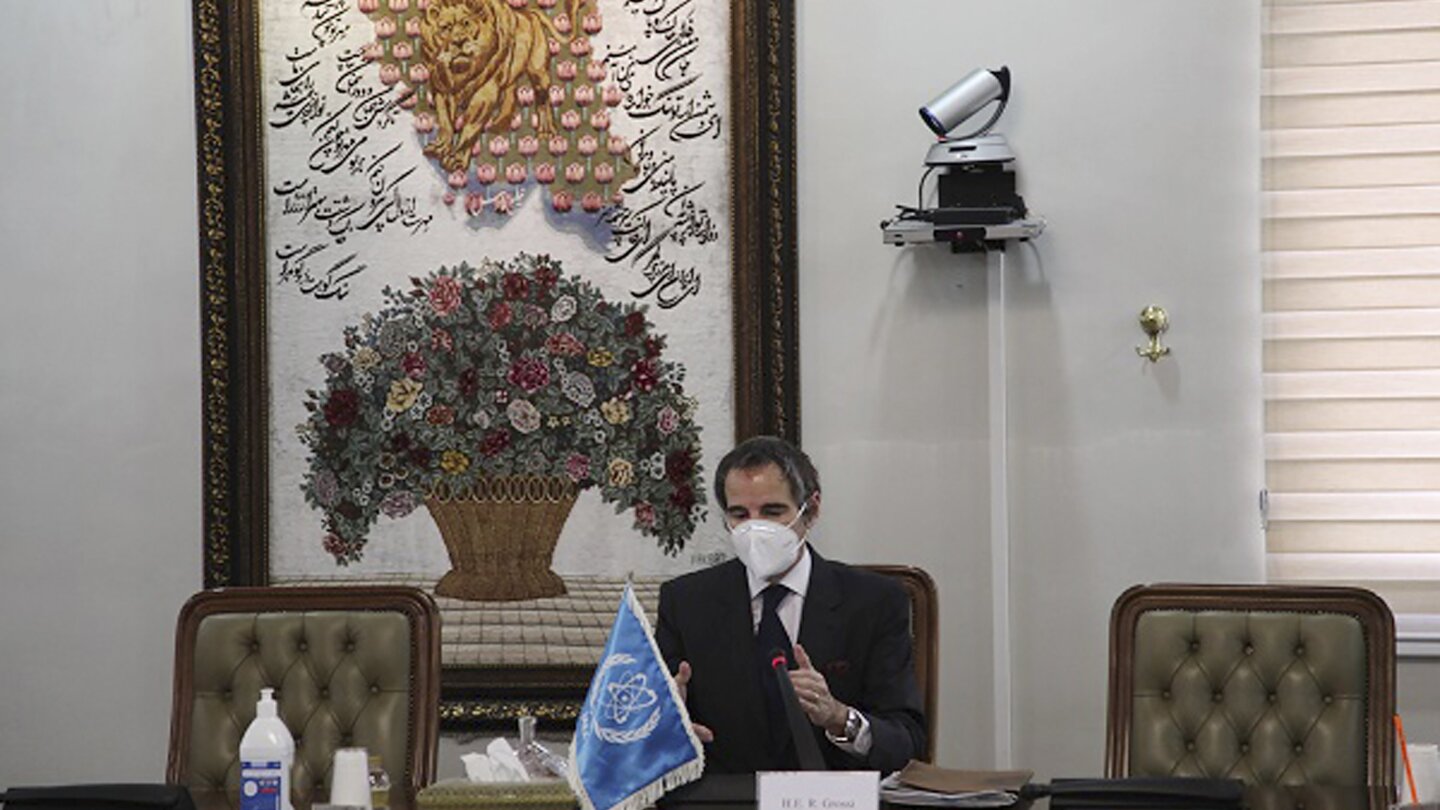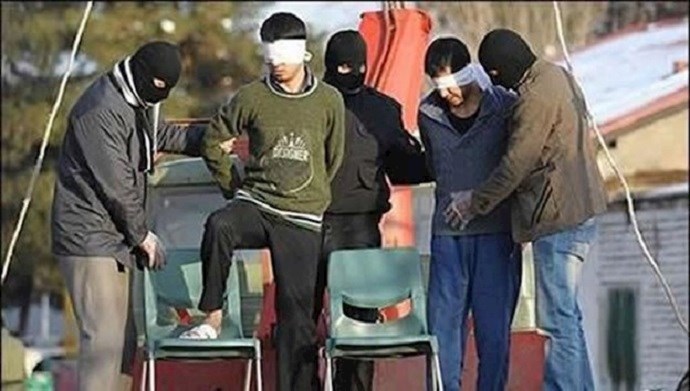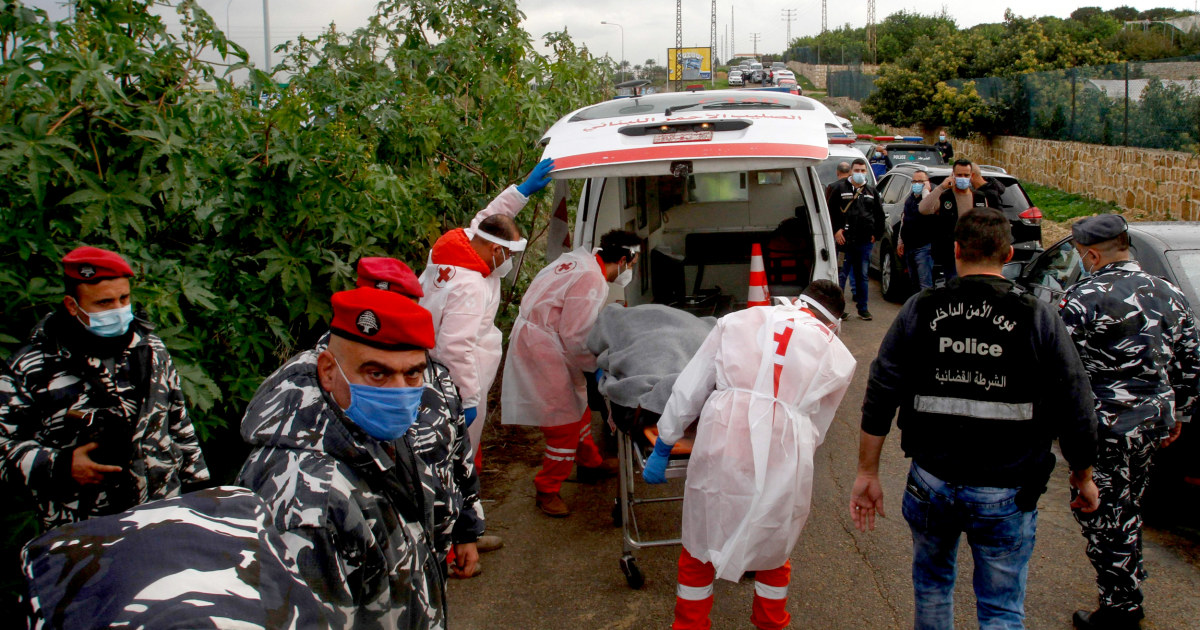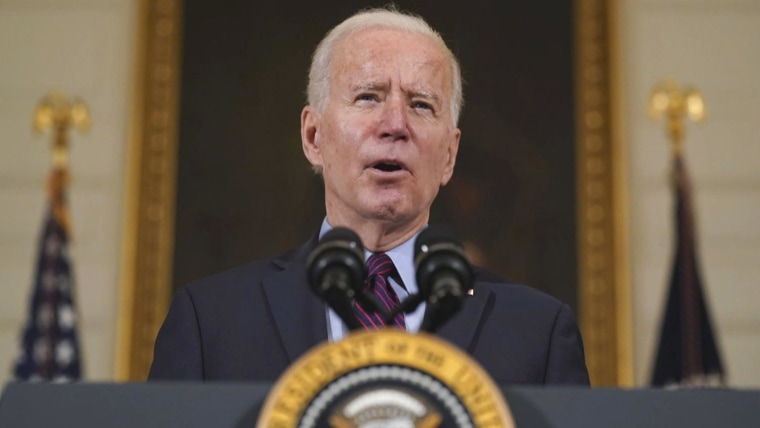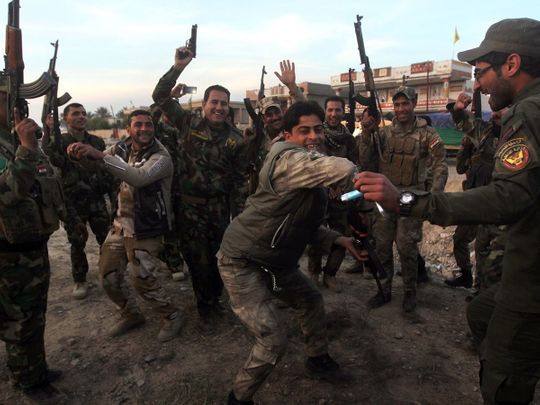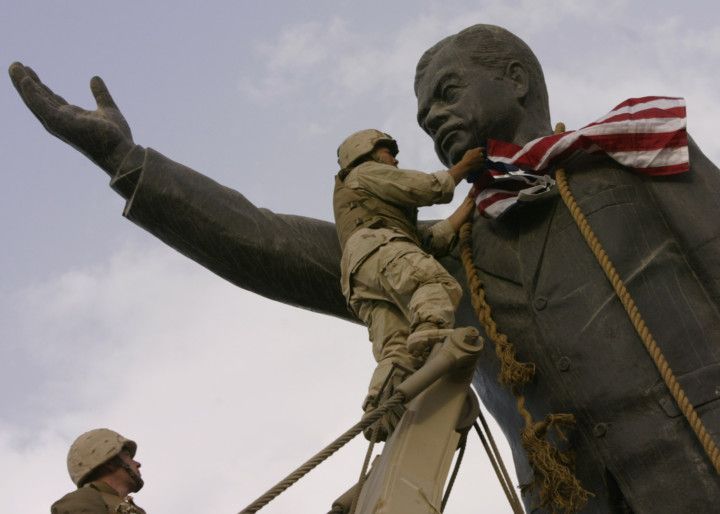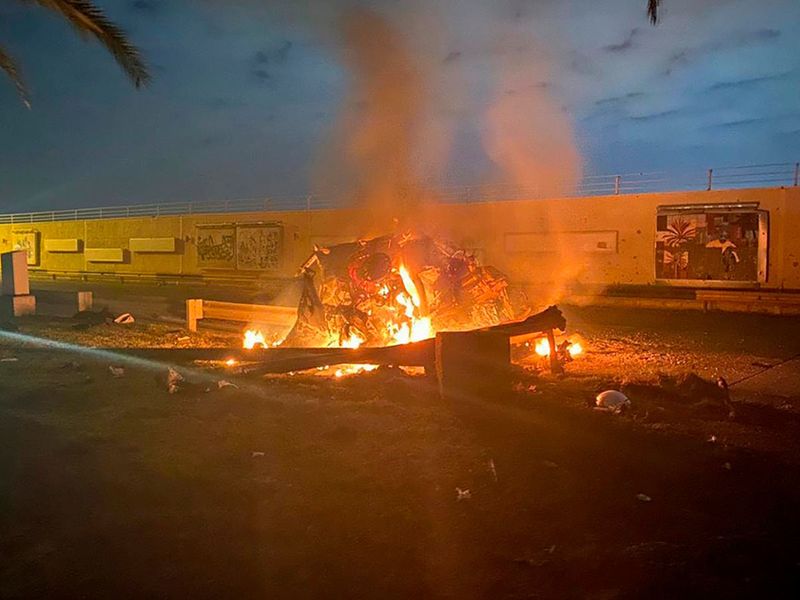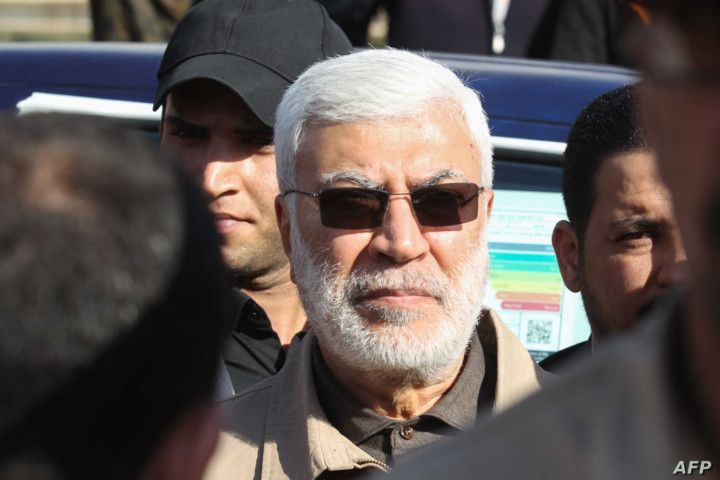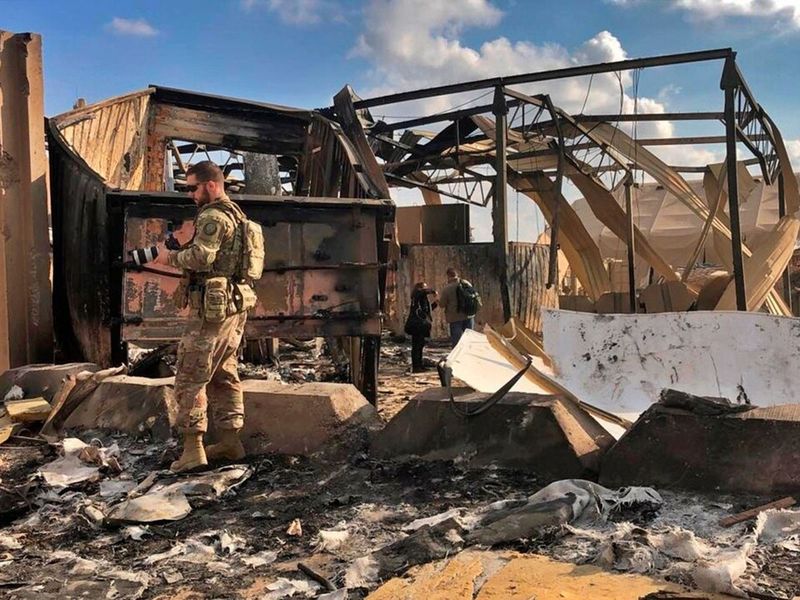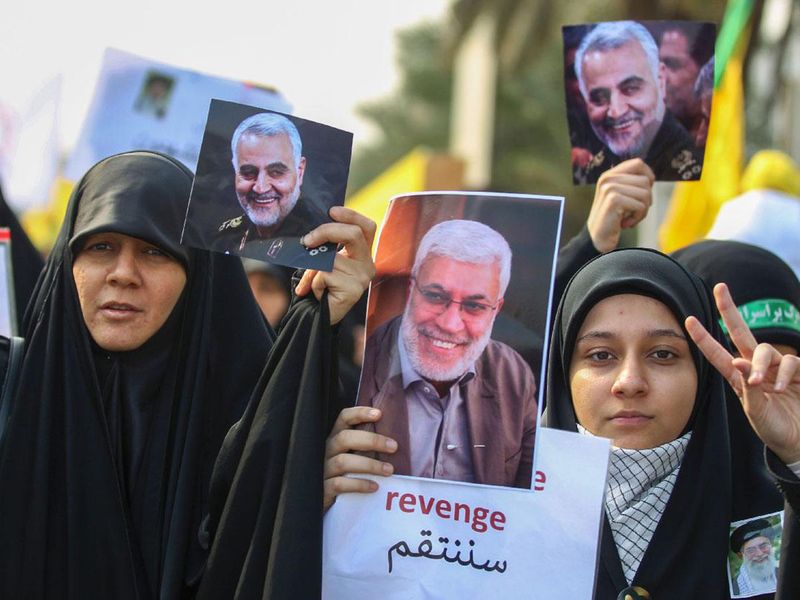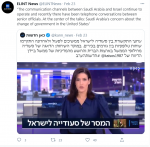northern watch
TB Fanatic
Iran’s use of Iraq as a missile base: Threats and logistics - analysis
Tensions with Iran appear underpinned by similar discussions about deterrence
By SETH J. FRANTZMAN
Jerusalem Post
FEBRUARY 18, 2021 17:09
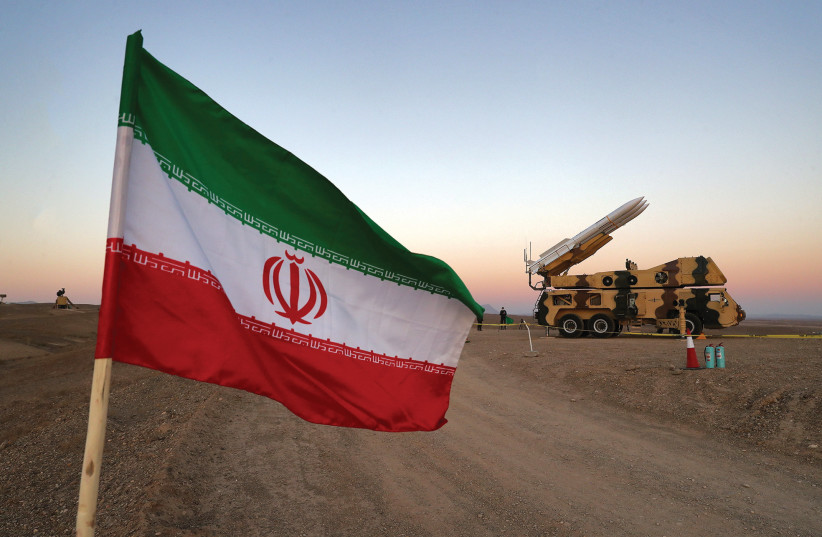
AN IRANIAN FLAG is pictured near in a missile during a military drill, with the participation of Iran’s air defense units in October. (West Asia News Agency/Reuters)
(photo credit: WEST ASIA NEWS AGENCY/REUTERS)
Iran could move up to 200 long-range missiles to Iraq, a report noted earlier this week, a move that would be designed to put in place missiles that could reach Israel. The reason Iran might do this is to prevent a direct IDF retaliation against targets within Iranian territory if there is a confrontation with Iran or Hezbollah in Syria or Lebanon.
In a sense, Iran’s concept of using ballistic missiles based in Iraq is similar to the planning concepts that underpinned US-Soviet tensions over missile bases and strike capability during the Cold War. There was a question in the 1950s over the military logic of using preemption, according to a documentary on US strategic nuclear policy. There was pressure to preempt war through a first strike, which Curtis LeMay called anticipatory retaliation. The notion was that since war was unavoidable one must get the first blow in. Later the doctrine changed to examine how nuclear weapons might be used. Deterrence became a key word in the debate. The development of ballistic missile submarines ensured strategic stability because it was survivable in the case of war.
Tensions with Iran appear underpinned by similar discussions about deterrence. Iran’s use of Iraq provides the country not only with strike capabilities, but deterrence as well. However, this is not as simple as it may look on paper. Iran has been sending weapons for Iraq for years. In the 1980s, it mobilized Iraqi Shi’ites alongside its Islamic Revolutionary Guards Corps to fight Saddam Hussein’s Iraq. The Badr corps and leaders – like Hadi al-Amiri and the late Abu Mahdi al-Muhandis – learned their trade in the 1980s. Later, Iran sent explosive device technology to Iraq. These were called “explosively formed penetrators,” which killed at least 196 Americans. In 2014, when Iran began advising the Iraqis to fight ISIS, they also sent weapons and know-how. Drones, missiles and other munitions followed.
IRAN USED the weakness of Iraq’s state structure to build a militia army in Iraq called the Hashd al-Shaabi, or PMU. This group includes the Badr Organization, Asaib Ahl al-Haq, Harakat Hezbolah al-Nujaba, Kataib Hezbollah and other groups. In 2017, Qais Khazali, head of AAH, went to Lebanon to showcase Iraqi militia support for Hezbollah. By the summer of 2018 a Kataib Hezbollah headquarters, in a villa near Albukamal, was coordinating Iranian weapons trafficking from Iraq to Syria. This was part of the road to the sea network that links Iran to Lebanon: first through Iraq, then to Syria via Deir Ezzor and T-4 airbase and finally reaching Hezbollah in Lebanon. Iran also moves weapons via Damascus airport and has tried to set up weapons factories. Iran has also sought to provide Hezbollah with precision guided munitions. Iran also moved drones to T-4 and, in April 2018, tried to move its 3rd Khordad air defense there as well. An airstrike destroyed the 3rd Khordad, according to Ynet. An airstrike also destroyed the KH villa in Albukamal in June 2018. Pro-Iran voices in Iraq have blamed the US-led coalition and Israel for some airstrikes. In July and August 2019, a series of airstrikes hit pro-Iranian militia warehouses in Iraq. These included Camp Falcon near Baghdad.
IN AUGUST 2018, Iran moved ballistic missiles to Iraq, according to Reuters. Iran secretly moved more missiles to Iraq in November 2019, reports indicate. Iran also constructed the Imam Ali base near Albukamal. In May 2020, it built new storage tunnels at the Imam Ali base. Iraqi-based militias linked to Iran have also vowed to support Hezbollah in a war with Israel. In February 2018, as the PMU was being incorporated into the Iraqi Security Forces, Akram al-Kaabi of Harakat Hezbollah vowed to support Hezbollah. After the US killed IRGC Quds Force head Qasem Soleimani, Hezbollah sent Sheikh Mohammed Kawtharani to Iraq to help coordinate the PMU in February 2020.
This is the complete picture of Iranian involvement in Iraq and potential Iraqi militia support for Hezbollah. This picture is also how the pro-Iranian militias in Iraq have helped festoon Syria with their networks and supporters. The ballistic missile issue has been raised in the past. Iran has moved 107 mm. short-range Katyusha rockets to Iraq to target American forces. It has also moved 122 mm. grad rockets and the Fajr 1 rocket, which have a range of nearly 60 km. The Fajr 5 has also been moved to Iraq, with a range of 75km. We also know the Fateh 110 was sent to Iraq in 2015. Iran has supplied Hamas in the past with technology such as the 240 mm. Fajr 3 rocket that has a 43km range. A CSIS report noted that Iran has shipped the Zelzal, Fateh 110 and Zolfagher to Iraq. These have ranges of 150 km. to 700 km. Iran has used precision rockets against Kurdish dissidents in Koya in 2018, against ISIS in Syria and against the US in Ayn al-Assad base in January 2020 in Iraq. Its latest attack was likely against US forces in Erbil using short range 107 mm. rockets fired near Erbil at US forces at the airport.
IRAN’S ARSENAL of rockets is well known. It has a plethora of them and keeps increasing their abilities. A quick rundown, aside those mentioned above, include the solid-fueled Fateh 313, the liquid-fueled Shahab 1 and Qiam, as well as the Shahab 3, and the solid-fueled Sejjil. There are also the Ghadr, Khorramshahr and Emad missiles. Many of these can be mounted on trucks, making them mobile. The rockets that are solid fueled can be wheeled out and fired immediately, such as from a Transporter Erector Launcher (TEL). Iran has a large arsenal of missiles to choose from as it seeks to move some to Iraq.
The past indicates the threat the missiles in Iraq can pose to Israel. During the ‘Great Scud Hunt’ of 1991, US-led Coalition air power flew 2,493 missions trying to find Scud missiles that were supposedly out in Iraq’s western desert. 42 Scuds were launched at Israel from Iraq. At the time it was believed they were being moved on large trucks that require some time to disassemble before or after launch in order to be hidden from airstrikes. Overall the mission to find the Scuds was a disaster. Iraq’s fleet of TELs was able to disperse and the use of F-15s and U-2 spy planes, as well as A-10s, didn’t work in finding the launchers. That was back in 1991, and technology has improved since.
The Iranian base at Albukamal is around 540 km. from Israel. Missiles in Iran’s inventory with that range include the Fateh 313, the Zolfagher, Ghadr, Khorramshahr, Sejjil, the Shahab 3 and perhaps the Shahab 2 if its range can be extended. Iran has vastly increased the precision of its missiles over time, and it has added drones and other munitions to its arsenal. This makes the setup very different from 1991. Iran has shown sophisticated capabilities in the past, such as the drone and cruise missile swarm attack on Saudi Arabia in September 2019. However, it has also proved that in Syria the rockets it supplied to groups intended to be used against Israel – such as in the salvo in May 2018 or the four rockets fired in November 2019 – were not as sophisticated.
Iran’s use of Iraq as a missile base: Threats and logistics - analysis - The Jerusalem Post (jpost.com)
Tensions with Iran appear underpinned by similar discussions about deterrence
By SETH J. FRANTZMAN
Jerusalem Post
FEBRUARY 18, 2021 17:09

AN IRANIAN FLAG is pictured near in a missile during a military drill, with the participation of Iran’s air defense units in October. (West Asia News Agency/Reuters)
(photo credit: WEST ASIA NEWS AGENCY/REUTERS)
Iran could move up to 200 long-range missiles to Iraq, a report noted earlier this week, a move that would be designed to put in place missiles that could reach Israel. The reason Iran might do this is to prevent a direct IDF retaliation against targets within Iranian territory if there is a confrontation with Iran or Hezbollah in Syria or Lebanon.
In a sense, Iran’s concept of using ballistic missiles based in Iraq is similar to the planning concepts that underpinned US-Soviet tensions over missile bases and strike capability during the Cold War. There was a question in the 1950s over the military logic of using preemption, according to a documentary on US strategic nuclear policy. There was pressure to preempt war through a first strike, which Curtis LeMay called anticipatory retaliation. The notion was that since war was unavoidable one must get the first blow in. Later the doctrine changed to examine how nuclear weapons might be used. Deterrence became a key word in the debate. The development of ballistic missile submarines ensured strategic stability because it was survivable in the case of war.
Tensions with Iran appear underpinned by similar discussions about deterrence. Iran’s use of Iraq provides the country not only with strike capabilities, but deterrence as well. However, this is not as simple as it may look on paper. Iran has been sending weapons for Iraq for years. In the 1980s, it mobilized Iraqi Shi’ites alongside its Islamic Revolutionary Guards Corps to fight Saddam Hussein’s Iraq. The Badr corps and leaders – like Hadi al-Amiri and the late Abu Mahdi al-Muhandis – learned their trade in the 1980s. Later, Iran sent explosive device technology to Iraq. These were called “explosively formed penetrators,” which killed at least 196 Americans. In 2014, when Iran began advising the Iraqis to fight ISIS, they also sent weapons and know-how. Drones, missiles and other munitions followed.
IRAN USED the weakness of Iraq’s state structure to build a militia army in Iraq called the Hashd al-Shaabi, or PMU. This group includes the Badr Organization, Asaib Ahl al-Haq, Harakat Hezbolah al-Nujaba, Kataib Hezbollah and other groups. In 2017, Qais Khazali, head of AAH, went to Lebanon to showcase Iraqi militia support for Hezbollah. By the summer of 2018 a Kataib Hezbollah headquarters, in a villa near Albukamal, was coordinating Iranian weapons trafficking from Iraq to Syria. This was part of the road to the sea network that links Iran to Lebanon: first through Iraq, then to Syria via Deir Ezzor and T-4 airbase and finally reaching Hezbollah in Lebanon. Iran also moves weapons via Damascus airport and has tried to set up weapons factories. Iran has also sought to provide Hezbollah with precision guided munitions. Iran also moved drones to T-4 and, in April 2018, tried to move its 3rd Khordad air defense there as well. An airstrike destroyed the 3rd Khordad, according to Ynet. An airstrike also destroyed the KH villa in Albukamal in June 2018. Pro-Iran voices in Iraq have blamed the US-led coalition and Israel for some airstrikes. In July and August 2019, a series of airstrikes hit pro-Iranian militia warehouses in Iraq. These included Camp Falcon near Baghdad.
IN AUGUST 2018, Iran moved ballistic missiles to Iraq, according to Reuters. Iran secretly moved more missiles to Iraq in November 2019, reports indicate. Iran also constructed the Imam Ali base near Albukamal. In May 2020, it built new storage tunnels at the Imam Ali base. Iraqi-based militias linked to Iran have also vowed to support Hezbollah in a war with Israel. In February 2018, as the PMU was being incorporated into the Iraqi Security Forces, Akram al-Kaabi of Harakat Hezbollah vowed to support Hezbollah. After the US killed IRGC Quds Force head Qasem Soleimani, Hezbollah sent Sheikh Mohammed Kawtharani to Iraq to help coordinate the PMU in February 2020.
This is the complete picture of Iranian involvement in Iraq and potential Iraqi militia support for Hezbollah. This picture is also how the pro-Iranian militias in Iraq have helped festoon Syria with their networks and supporters. The ballistic missile issue has been raised in the past. Iran has moved 107 mm. short-range Katyusha rockets to Iraq to target American forces. It has also moved 122 mm. grad rockets and the Fajr 1 rocket, which have a range of nearly 60 km. The Fajr 5 has also been moved to Iraq, with a range of 75km. We also know the Fateh 110 was sent to Iraq in 2015. Iran has supplied Hamas in the past with technology such as the 240 mm. Fajr 3 rocket that has a 43km range. A CSIS report noted that Iran has shipped the Zelzal, Fateh 110 and Zolfagher to Iraq. These have ranges of 150 km. to 700 km. Iran has used precision rockets against Kurdish dissidents in Koya in 2018, against ISIS in Syria and against the US in Ayn al-Assad base in January 2020 in Iraq. Its latest attack was likely against US forces in Erbil using short range 107 mm. rockets fired near Erbil at US forces at the airport.
IRAN’S ARSENAL of rockets is well known. It has a plethora of them and keeps increasing their abilities. A quick rundown, aside those mentioned above, include the solid-fueled Fateh 313, the liquid-fueled Shahab 1 and Qiam, as well as the Shahab 3, and the solid-fueled Sejjil. There are also the Ghadr, Khorramshahr and Emad missiles. Many of these can be mounted on trucks, making them mobile. The rockets that are solid fueled can be wheeled out and fired immediately, such as from a Transporter Erector Launcher (TEL). Iran has a large arsenal of missiles to choose from as it seeks to move some to Iraq.
The past indicates the threat the missiles in Iraq can pose to Israel. During the ‘Great Scud Hunt’ of 1991, US-led Coalition air power flew 2,493 missions trying to find Scud missiles that were supposedly out in Iraq’s western desert. 42 Scuds were launched at Israel from Iraq. At the time it was believed they were being moved on large trucks that require some time to disassemble before or after launch in order to be hidden from airstrikes. Overall the mission to find the Scuds was a disaster. Iraq’s fleet of TELs was able to disperse and the use of F-15s and U-2 spy planes, as well as A-10s, didn’t work in finding the launchers. That was back in 1991, and technology has improved since.
The Iranian base at Albukamal is around 540 km. from Israel. Missiles in Iran’s inventory with that range include the Fateh 313, the Zolfagher, Ghadr, Khorramshahr, Sejjil, the Shahab 3 and perhaps the Shahab 2 if its range can be extended. Iran has vastly increased the precision of its missiles over time, and it has added drones and other munitions to its arsenal. This makes the setup very different from 1991. Iran has shown sophisticated capabilities in the past, such as the drone and cruise missile swarm attack on Saudi Arabia in September 2019. However, it has also proved that in Syria the rockets it supplied to groups intended to be used against Israel – such as in the salvo in May 2018 or the four rockets fired in November 2019 – were not as sophisticated.
Iran’s use of Iraq as a missile base: Threats and logistics - analysis - The Jerusalem Post (jpost.com)



